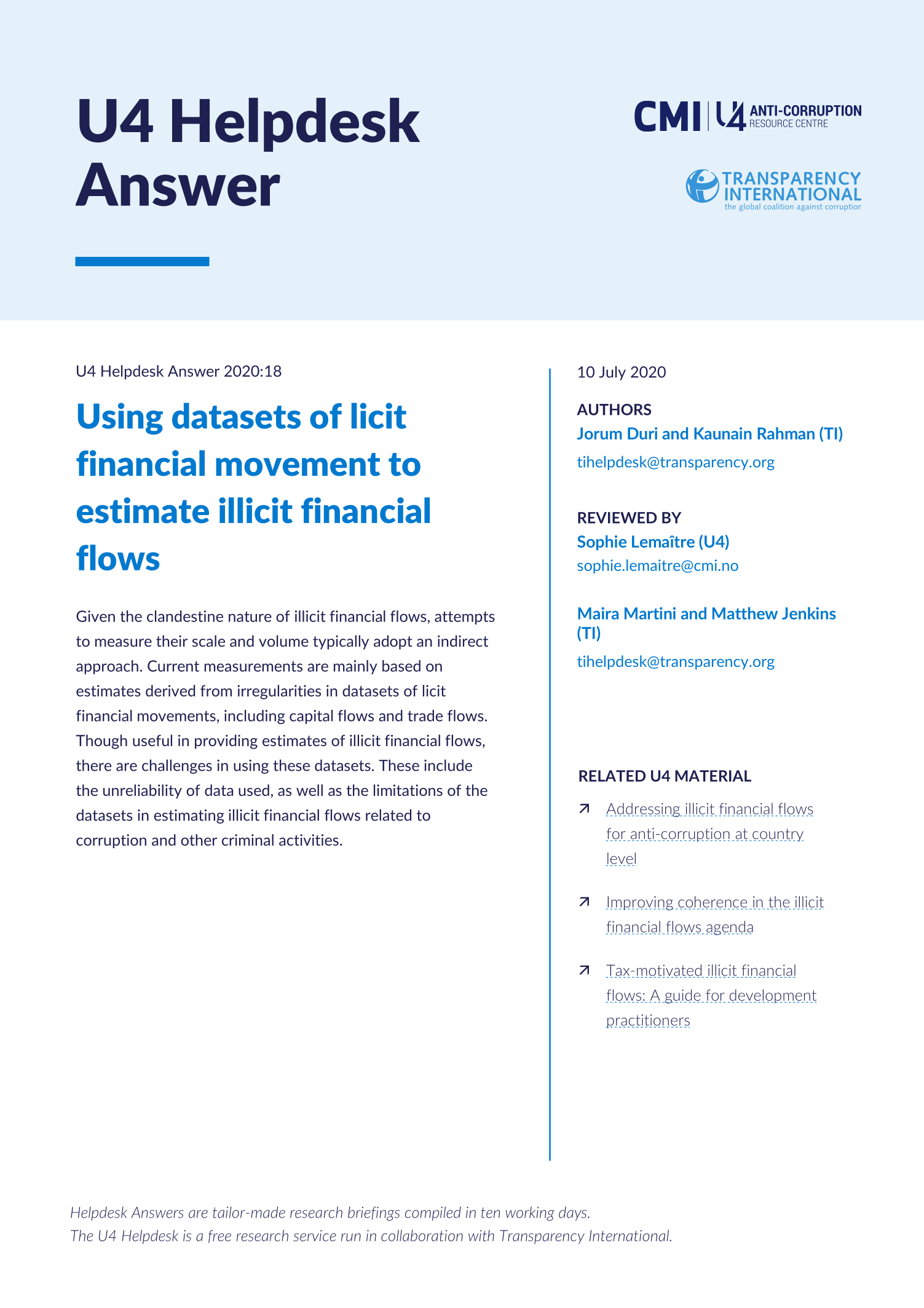Main points
- Measuring IFFs is a challenging task, and estimates are mainly based on irregularities in data rather than direct measurement.
- The main datasets used include the IMF’s Direction of Trade Statistics and Balance of Payments data, United Nations Commodity Trade Statistics Database, Bank for International Settlements datasets, Foreign Affiliates Statistics and Foreign Direct Investments datasets.
- A major challenge in estimating IFFs from these datasets is the reliability of the data used. For instance, some IFF calculations have been revised due to the inaccuracy of data used.
- Most datasets cannot be used to measure crime and corruption-related IFFs, and these types of IFFs are mainly measured using data from investigations, suspicious transaction reports, prosecutions, convictions or surveys.



